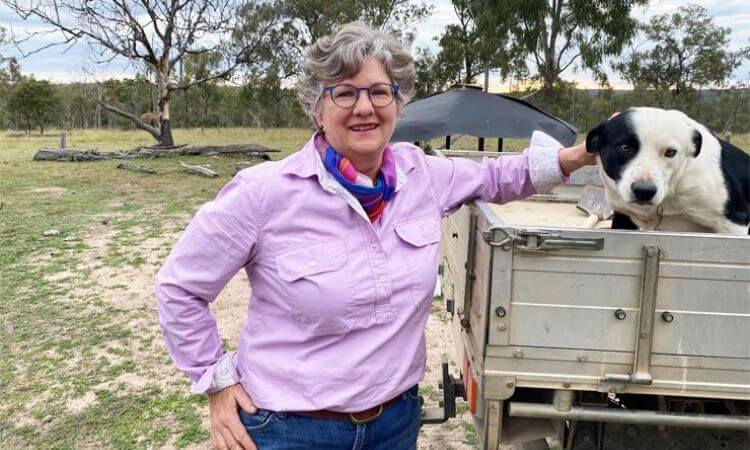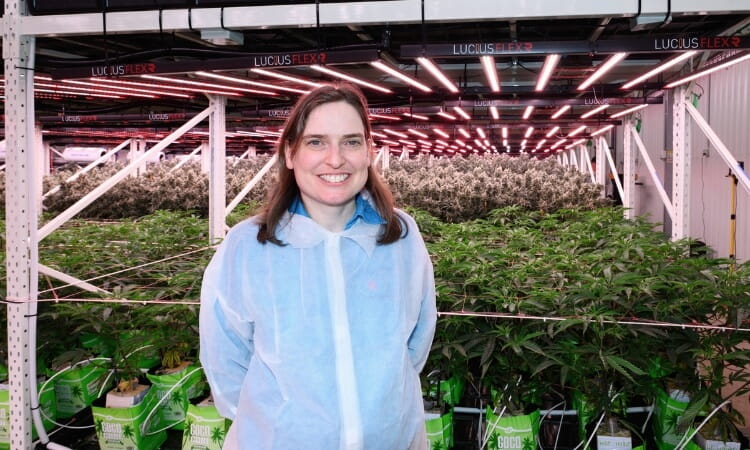The Queensland Government’s big push to help farmers better manage climate risks has entered its next phase, with University of Southern Queensland leading major projects to help those most vulnerable to drought.
Of the six programs making up the third phase of the Drought and Climate Adaptation Program (DCAP), the University will spearhead three initiatives funded for the next four and a half years.
Deputy Vice-Chancellor (Research and Innovation) Professor John Bell said the University would deliver the programs through its Queensland Drought Mitigation Centre, building on its substantial existing work on climate adaptation more broadly.
“The fight against drought is fought on many fronts,” Professor Bell said.
“Over the past few years alone, our climate scientists have worked tirelessly on projects that have seen improved seasonal forecast products, tools and on-property activities.
“At the same time, members of our Centre for Applied Climate Sciences have been among the leading voices on this topic at an international level – their expertise sought from organisations such as United Nation’s World Meteorological Organization.
“The links our climate centre has with the University-led Southern Queensland and Northern New South Wales Hub (SQNNSW Hub) through the Future Drought Fund Hub will also help increase the benefits of the DCAP research to the region.
“University of Southern Queensland has been heavily involved in previous DCAP projects and I’m heartened to see that great work will continue.”
The three projects funded for DCAP 3 include $3.7 million to continue the University-led Northern Australia Climate Program (NACP), $845,000 to create alternate agricultural income streams to increase farm profitability and benefit the environment and $410,000 to improve pasture prediction in drought-impacted savanna woodlands.
Director of the University’s Centre for Applied Climate Sciences Professor Scott Power said the three projects were strongly aligned with the Centre’s mission to help people and organisations manage climate variability, climate change and climate extremes.
“NACP is a partnership between the University of Southern Queensland, Queensland Government, and Meat and Livestock Australia Donor Company to help the grazing industry better manage drought and climate risks,” Professor Scott Power said.
“Over the past few years, it has improved the reliability of multi-week, seasonal and multiyear forecasts, and enabled us to establish a network of ‘Climate Mates’ to support the development and delivery of customised climate information and products into regional networks.
“Professor (Agricultural Economics and Climate Finance) Shahbaz Mushtaq, Dr Jarrod Kath, and Dr Kathryn Reardon-Smith will develop a platform to help land managers identify and manage the risks associated with engaging with government programs that monetise environmental benefits (i.e. payments to farmers for carbon and biodiversity credits).
“The project will work closely with the Queensland Farmers Federation, Australian Bureau of Agricultural and Resource Economics and Sciences, Department of Environment and Science, and Commonwealth Bank of Australia.
“Jo Owens, Dr Tim Cowan and David Cobon’s project will fill fundamental gaps in our knowledge of competition for water between trees and grasses, enabling graziers to better manage areas with woody vegetation.
“Their work will monitor water, carbon and energy fluxes to enable graziers to better manage areas with woody vegetation, collaborating with James Cook University, the Australia Terrestrial Ecosystem Research Network and three Queensland Government departments.
Learn more about the University of Southern Queensland’s Centre for Applied Climate Sciences, including the Queensland Drought Mitigation Centre.



